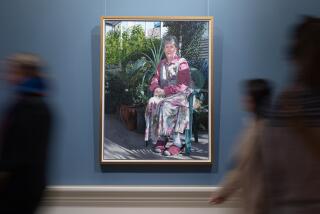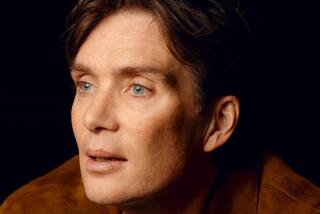She’s a good judge of potential jurors
- Share via
Molly Murphy spent six years in the TV business, which is one reason she’s among the most sought-after trial consultants in Southern California.
Murphy also learned a lot about what makes people tick when she worked in marketing, as a business consultant and as a flight attendant. But she thinks her experience as a television script supervisor and producer is what gives her the edge.
TV “taught me a great deal about what can be said from frame to frame,” she says. “I visualize how a jury will see the story.”
Since starting her practice 13 years ago, Murphy has consulted on more than 300 trials and helped pick juries in hundreds more -- notching up more trial work than most lawyers ever do. In the process, she’s become a local star in an increasingly crowded field of trial consultants, generally nonlawyers who’ve become commonplace in courtrooms in recent years. Some help handicap potential jurors, looking for clues as to who is likely to sympathize with a client; others also prepare witnesses and help lawyers rehearse their arguments, sometimes by dry-running the presentations before paid mock jurors convened in rented space. Murphy does all that.
Her skills set her apart, says Phil Harley, a San Francisco attorney who has hired Murphy for a number of trials, including an asbestos personal-injury trial in Los Angeles over the summer.
“Molly’s the first consultant I’ve used who I felt could verbalize specific nonverbal cues” from jurors -- how they construct a sentence, the inflection of their voices, how they move their eyes or shift their bodies, he says. “She’s very good at that.”
Harley’s case settled immediately after both sides had agreed on the jury, a measure, he believes, of Murphy’s ability to identify jurors who were likely to be sympathetic to his client, a 49-year-old with mesothelioma, a particularly lethal form of cancer.
Jury consulting got its start with the 1972 federal trial of Philip Berrigan and six other Vietnam War protesters, according to Chris Dominic, president of the American Society of Trial Consultants.
Psychologists and communications experts surveyed potential jurors in that case to help defense lawyers identify those who would be most sympathetic to the defendants. The jury acquitted them all of conspiracy and kidnapping charges, and “the field evolved from there,” Dominic says.
In recent decades, lawyers in virtually every high-profile trial, civil and criminal, have used consultants, including those involving O.J. Simpson, Lyle and Erik Menendez, John DeLorean and William Kennedy Smith. Psychologist Phil McGraw -- Dr. Phil -- catapulted to fame and his own television show after helping lawyers for Oprah Winfrey pick a jury in a 1998 case brought by Texas cattlemen who accused her of defaming the beef industry. The jury found Winfrey wasn’t liable for damages.
The Seattle-based American Society of Trial Consultants lists more than 500 consultants on its roster; there are hundreds more practitioners in the field. Although the society, founded in 1982, imposes no formal credentialing requirements, Dominic says, most consultants have graduate degrees in psychology or sociology. Some even tout their training as actors.
That’s no surprise, because every trial is a performance of sorts. Lawyers hire trial consultants for the same reason actors or comedians try out their material, says Sid Kanazawa, a Los Angeles litigator.
“You’re trying to develop a story that resonates with people, but you have only one shot when you go to trial,” he says. Consultants like Murphy who help lawyers develop and rehearse courtroom presentations offer reality tests, he says, which is important because attorneys are often lousy sounding boards for their own arguments. They get caught up in legal nuances that may not sway jurors as much as a persuasive story well told.
Murphy got her start when a lawyer friend asked for help structuring her opening and closing arguments in a trial, advice her friend believes helped win the case.
The Minnesota native found she loved the work. “It’s putting the pieces together to help the jury understand what the case is about,” she says.
But before hanging her own shingle in a small Santa Monica office, Murphy spent a year working without charge for several trial-lawyer friends. That let her make mistakes and gain confidence.
“Then my name started to get out,” she recalls. She now routinely juggles about eight cases at once and says she turns away business. She has worked for plaintiffs and defendants in civil cases and for prosecutors as well as incarcerated criminal defendants. “I’ve done a lot of witness prep behind plexiglass,” she says.
Murphy charges an hourly rate for case preparation and a day rate for courtroom time. The Marina del Rey resident says she’s quadrupled her annual income since 1994.
“I have an ability to see things that the lawyers can’t see,” she says.
During jury selection in the recent asbestos case, Murphy noticed that one prospective juror -- a man who’d worked for the same company for 33 years -- seemed to react negatively to a disparaging statement about corporations from another prospective juror.
Murphy saw the longtime corporate employee cross his arms and noticed that “his face said, ‘You have no idea what you’re talking about.’ ”
“Watch Juror #13,” she scribbled on a note to attorney Harley, who eventually dismissed the man from the panel.
In another case, Murphy says, she spent a week preparing a nurse to be an effective witness for herself in a personal-injury case. The plaintiff had suffered severe back injuries while assisting in a medical procedure. “But she was so bitter and in so much pain, the jury was going to hate her,” Murphy says. Murphy did a lot of old-fashioned psychological counseling, helping the plaintiff deal with her anger and self-pity, so that by the time she took the stand, she was a sympathetic witness.
Murphy plans to share her insights on behavior and the legal system through a television documentary she’s working on tentatively titled “Frivolous Lawsuits or Are They?” and a book aimed at helping people deal with conflict.
“This work,” she says, “rings all my bells.”
--
Face reader
Who: Molly M. Murphy
Age: 53
Family: Single, lives in Marina del Rey and dotes on her Labradoodle, Gracie
Education: Bachelor’s degree from the University of Minnesota in interpersonal communications and a master’s in dispute resolution from Pepperdine Law School
Her bible: “Blink: The Power of Thinking Without Thinking,” by Malcolm Gladwell. “The premise is that within the blink of your eye you can pick up so much information from a person during that moment as well as a pattern of who they are.” ’
Favorite courtroom TV show: “Shark.” “It’s pretty close to the dynamics and drama of real discovery and argument.”
More to Read
Sign up for Essential California
The most important California stories and recommendations in your inbox every morning.
You may occasionally receive promotional content from the Los Angeles Times.













